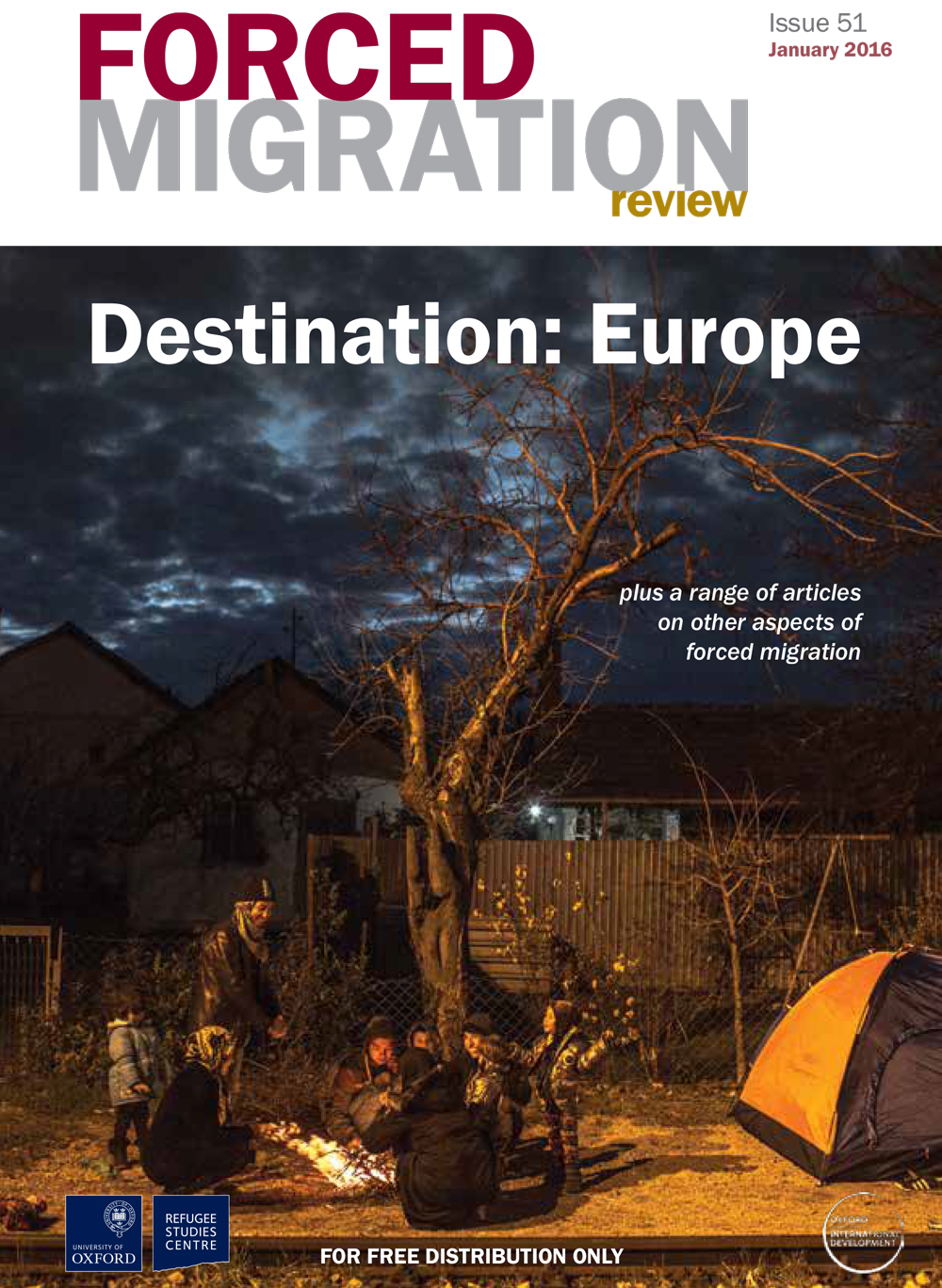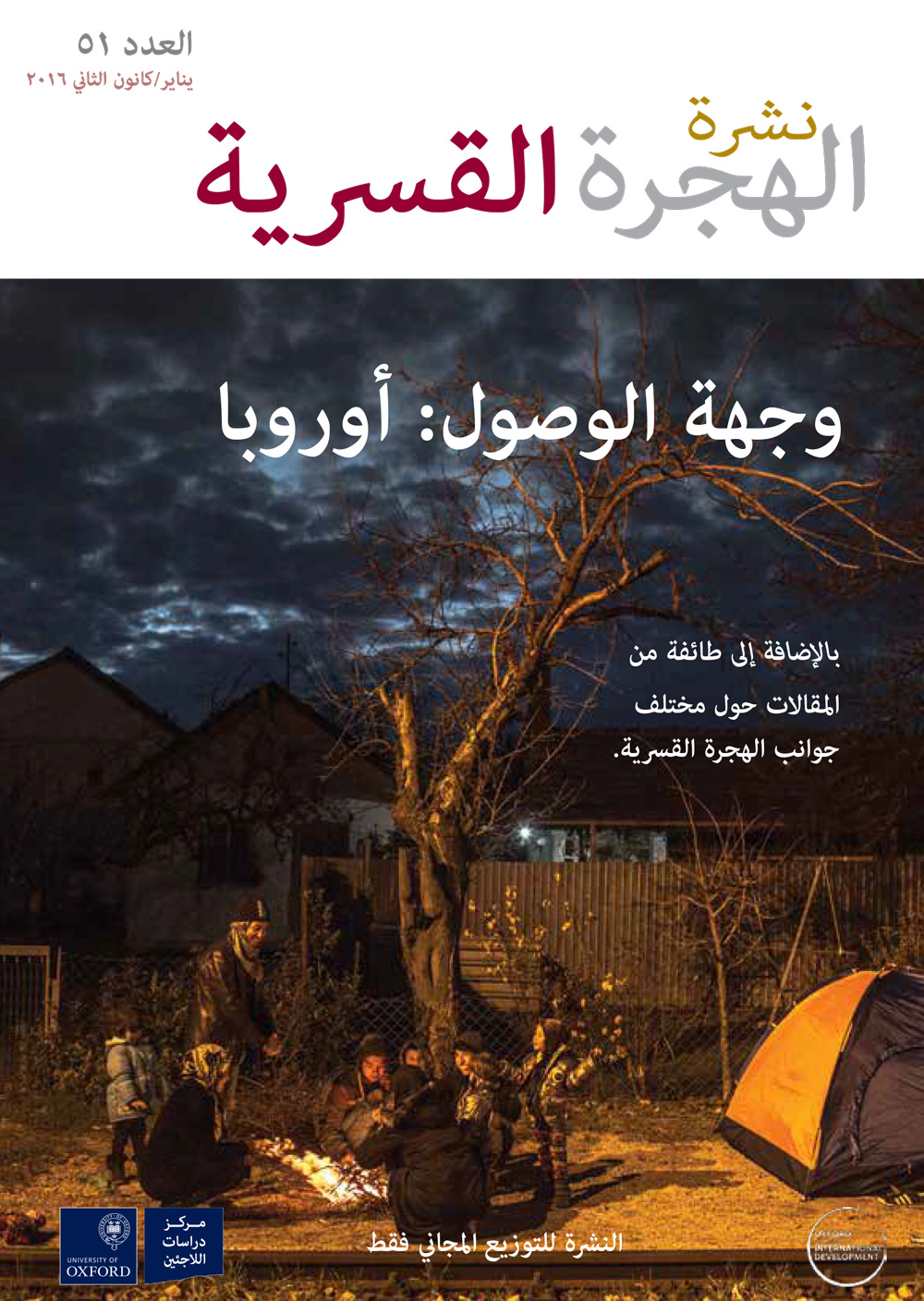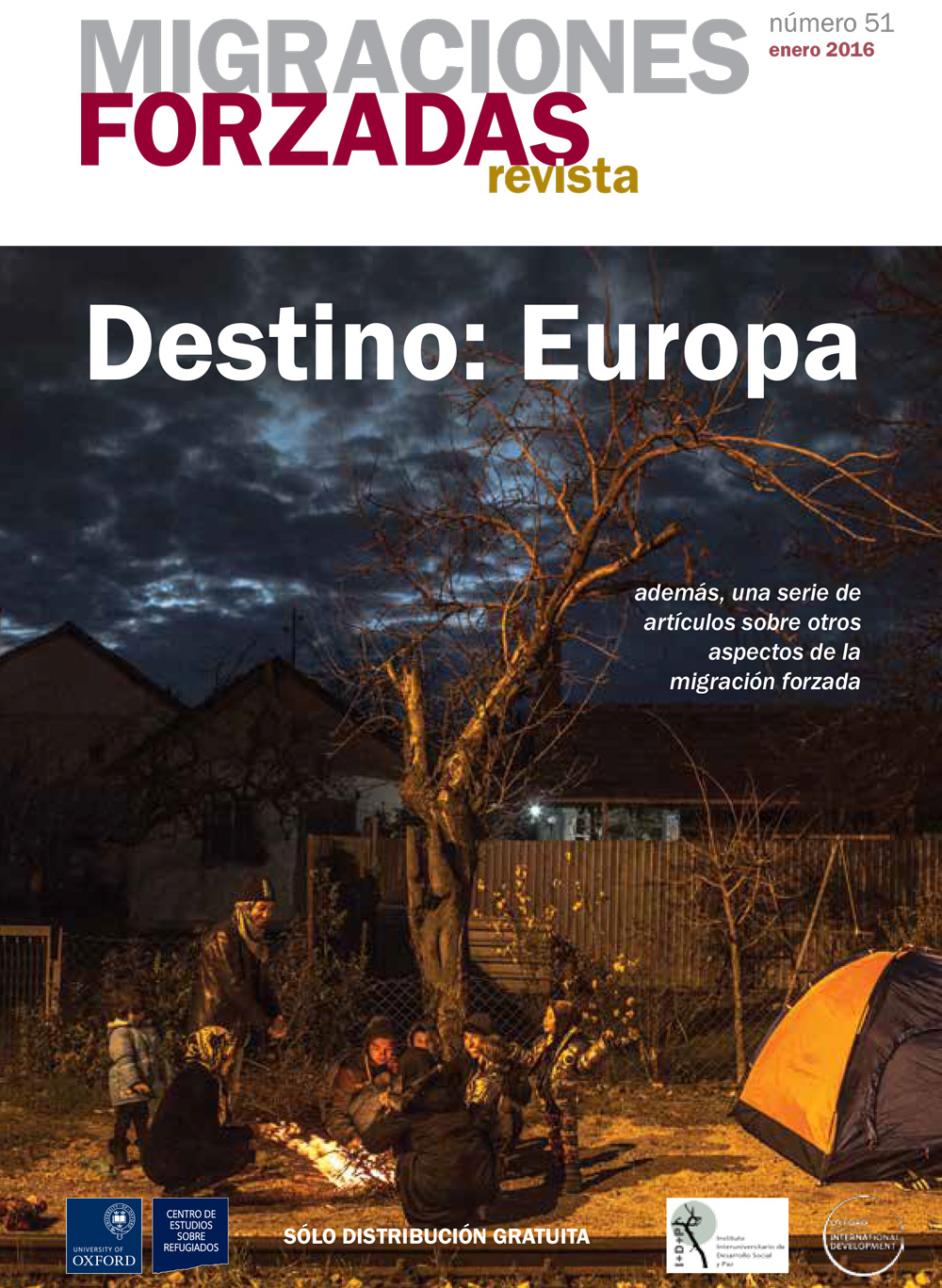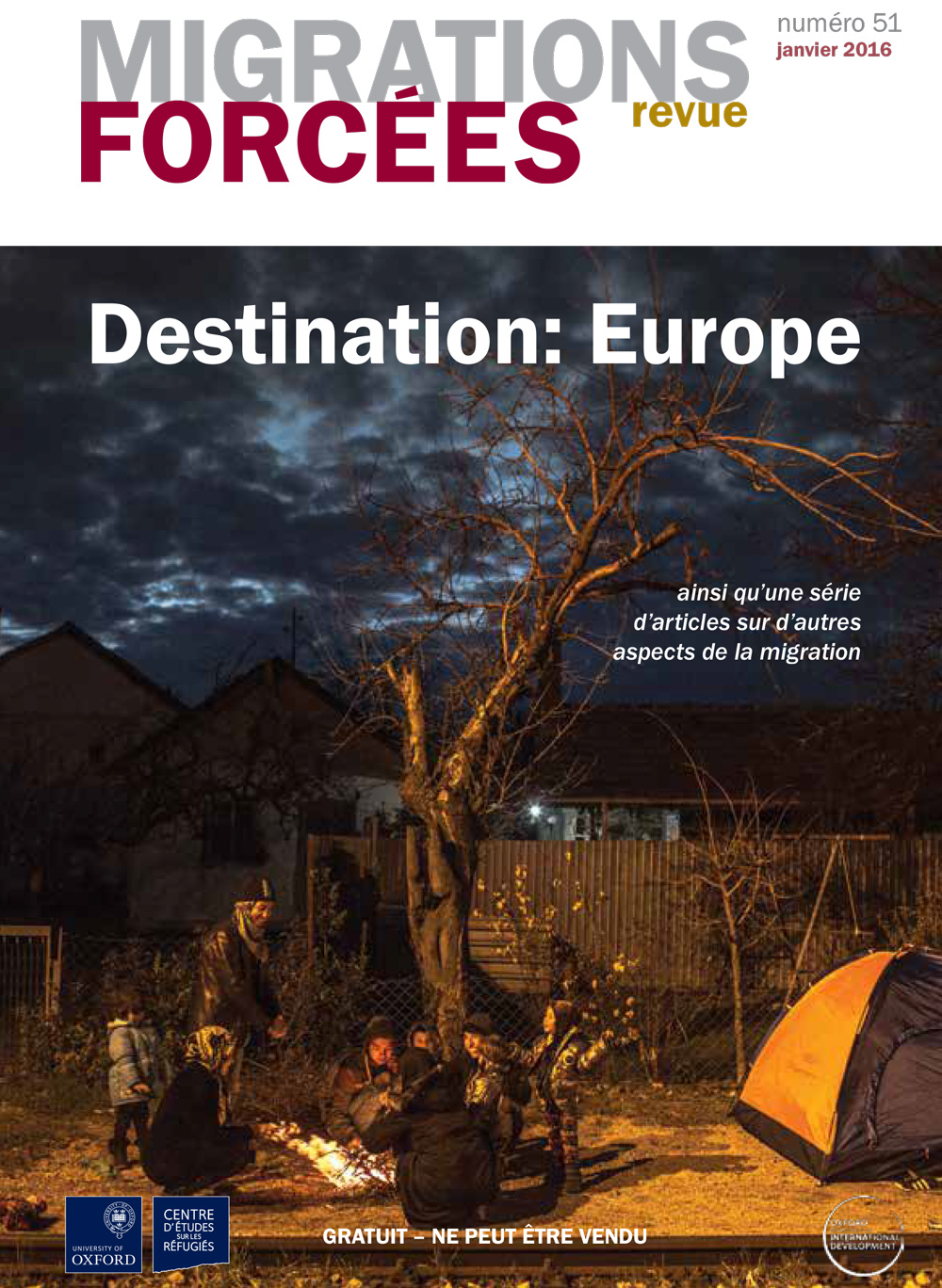From the Editors
Europe is experiencing the mass movements of displaced people in a way that it has largely been immune from for decades. The ramifications and manifestations of what is being called a migration crisis are extensive, intersecting with national as well…
Foreword: Banking on mobility over a generation
Migration cannot be stopped, without massively violating the human rights of the migrants. It may be deflected and rerouted, for a time. But European efforts to stop irregular migration will fail on a massive scale given the push and pull…
Migrants, refugees, history and precedents
It was in the nineteenth century that a recognisably modern form of mass migration was made possible by new forms of transport, colonial settlement and the expansion of the United States (US). Between 1846 and 1914, over 30 million migrants…
Refugee protection in Europe: time for a major overhaul?
Hundreds of thousands of refugees, and smaller numbers of economic migrants, are arriving on the shores of south and south-eastern Europe. Most of those arriving in Greece and Italy have no interest in staying in either of these two countries.…
Simplifying refugee status determination
International law maintains that status determination is declaratory, which means that status determination does not make one a refugee but declares one to be a refugee. It means that many of those now on the move are refugees, in spite…
Arrivals on the island of Lesbos, summer 2015
By the end of August 2015, improvised camps had been set up all over Mytiline, the capital of Lesbos, and outside the two designated areas. This created a huge pressure for the local population and authorities, already low on resources…



